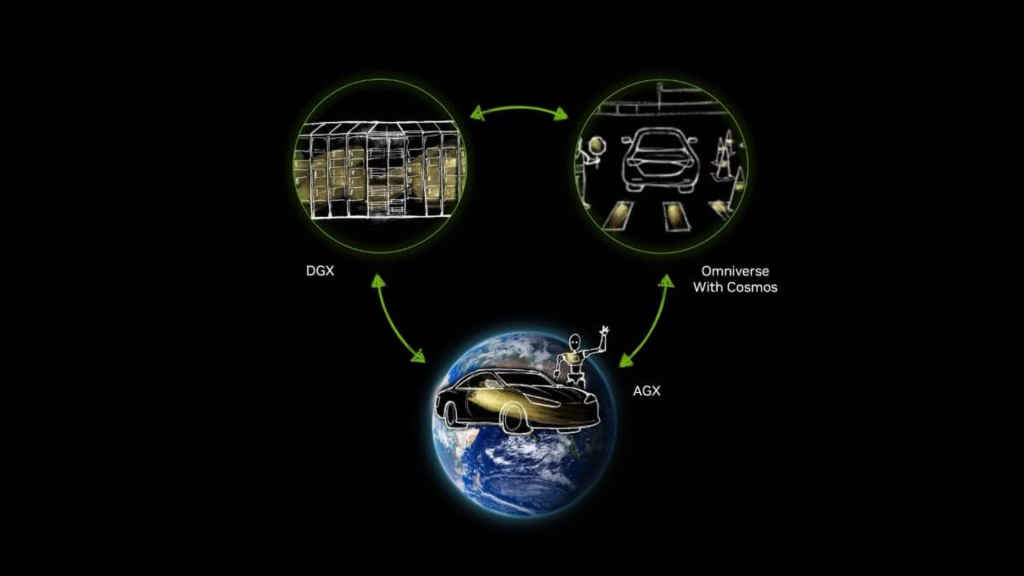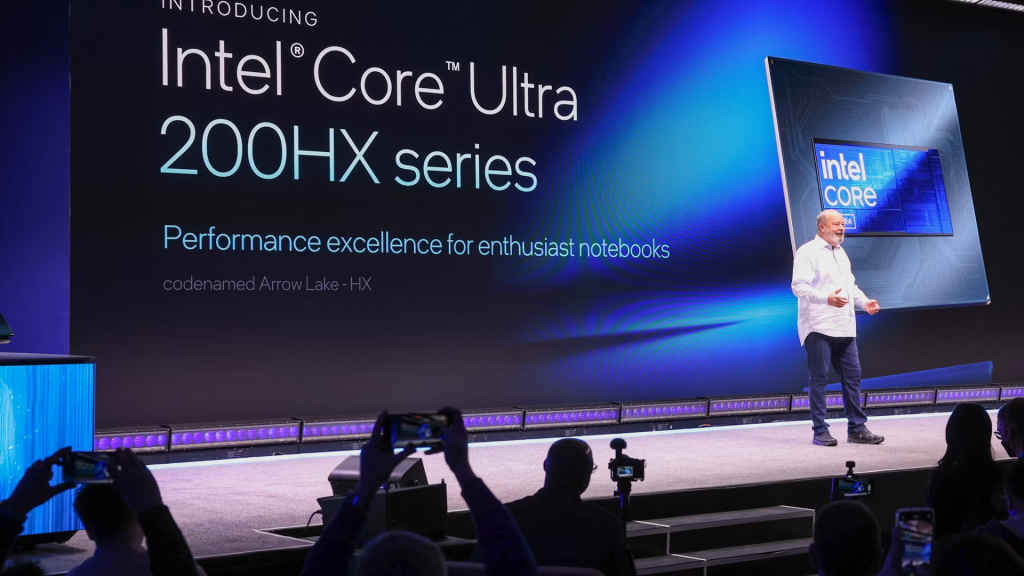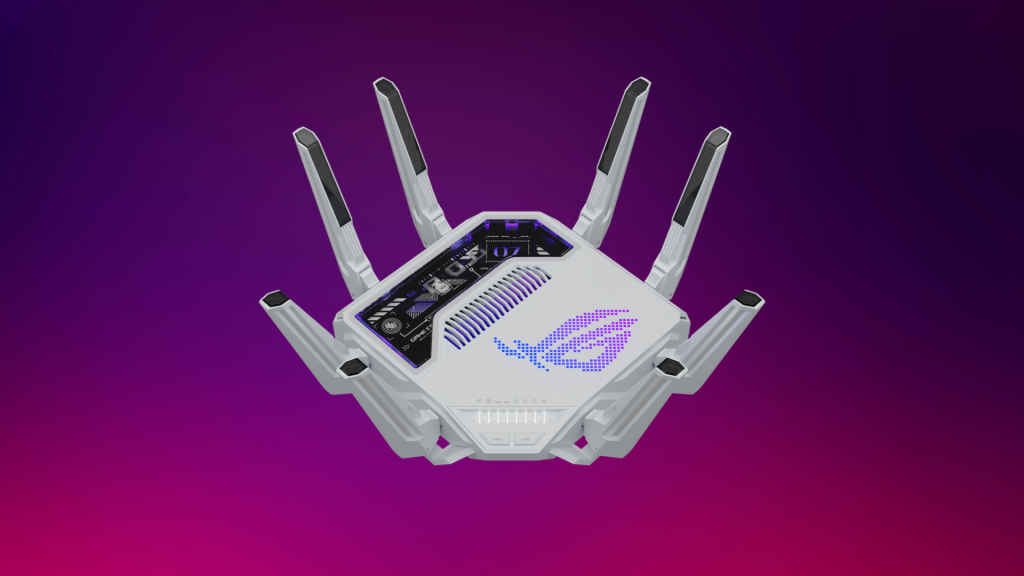CES 2025: Top 3 interesting AI announcements

CES 2025 has once again proven to be the ultimate stage for innovation, where technology meets imagination to shape the future. This year’s event was a testament to how artificial intelligence (AI) is transforming industries and daily life, with exciting announcements from leading tech giants. NVIDIA introduced Cosmos, a revolutionary platform for physical AI, alongside a powerful AI supercomputer.
 Survey
SurveyIntel unveiled its vision for AI-powered PCs, setting a new standard for personal computing. ASUS made waves with the world’s first AI-powered router, promising smarter and more secure connectivity. These advancements not only push the boundaries of what technology can achieve but also highlight how AI is becoming an integral part of our lives, from gaming and robotics to home networking and beyond.
1. NVIDIA: Cosmos – Pioneering physical AI
NVIDIA introduced Cosmos, a platform that marks a significant leap forward in the development of physical AI systems. Designed to simulate and understand the physical world, Cosmos enables developers to train AI models for robotics, autonomous vehicles, and industrial automation in highly accurate virtual environments. NVIDIA CEO Jensen Huang described Cosmos as a “ChatGPT moment for robotics,” emphasizing its transformative potential.

Key Highlights of Cosmos
- World Foundation Models (WFMs): These advanced neural networks can simulate real-world physics, such as gravity and friction, allowing AI systems to learn and adapt without requiring costly real-world data collection.
- Synthetic Data Generation: Cosmos creates vast amounts of photorealistic, physics-aware synthetic data, accelerating training processes for AI models.
- Multiverse Simulations: The platform allows developers to simulate multiple future scenarios, enabling predictive decision-making for industries like robotics and autonomous vehicles.
- AI-Accelerated Video Processing: Leveraging NVIDIA’s Blackwell GPUs, Cosmos processes 20 million hours of video data in just 14 days, drastically reducing development timelines.
NVIDIA also unveiled an AI supercomputer built on its Hopper architecture. Designed for training increasingly complex AI models, this system offers exceptional computational speed and scalability. It is expected to accelerate advancements in fields like autonomous vehicles, robotics, healthcare diagnostics, and generative AI.
Also read: CES 2025: Three robots that are turning heads this year
2. Intel: The rise of AI-powered PCs
Intel unveiled its vision for a new era of computing with its AI-powered PCs, driven by Lunar Lake processors and Core Ultra chips. These innovations position Intel as a leader in integrating artificial intelligence into everyday computing.

Key Announcements
- Lunar Lake processors for commercial PCs: Following their 2024 debut in consumer laptops, Lunar Lake processors were officially launched for commercial PCs at CES 2025. These chips are part of Intel’s vPro platform, offering unmatched energy efficiency, on-device AI processing, and enhanced security features tailored for business users.
- Arrow Lake processors: Intel introduced the Core Ultra 200H series, codenamed Arrow Lake, designed for high-performance laptops and desktops. These processors deliver improved CPU cores, integrated graphics, and up to 99 TOPS (trillion operations per second) of AI acceleration. They are ideal for gamers, creators, and power users seeking top-tier performance.
- AI integration across devices: Intel’s Core Ultra processors now feature integrated Neural Processing Units (NPUs) capable of performing up to 48 trillion operations per second (TOPS). This enables advanced AI tasks like real-time transcription, image generation, and productivity enhancements directly on the device without relying on cloud processing.
Michelle Johnston-Holthaus, Intel’s Co-CEO, emphasized that over 40% of PCs shipped in 2025 will feature AI capabilities. Intel is collaborating with partners like HP, Dell, Lenovo, and Microsoft to drive the adoption of these transformative technologies.
Also read: CES 2025: Top unusual gadgets you must know about
3. ASUS: World’s first AI-powered router
ASUS introduced the world’s first AI-powered gaming router, the ROG Rapture GT-BE19000AI, bringing artificial intelligence into home networking for unprecedented performance and security.

Key Features
- AI Optimization: A built-in Neural Processing Unit (NPU) dynamically manages bandwidth allocation in real-time, ensuring lag-free gaming and seamless streaming.
- WiFi 7 Technology: The router delivers ultra-fast speeds of up to 19,000 Mbps, ideal for high-demand applications like cloud gaming and 8K streaming.
- AI-powered security: Advanced threat detection systems monitor and neutralize cyber threats in real-time.
The ROG Rapture GT-BE19000AI is tailored for gamers, smart homes, and professionals who demand stable high-speed connectivity.
Also read: CES 2025: NVIDIA Blackwell GeForce RTX 50 Series graphics cards announced starting at $549
Wrapping Up
CES 2025 showcased a future driven by bold technological breakthroughs that promise to redefine how we live, work, and connect. NVIDIA’s Cosmos platform and AI supercomputer are paving the way for advancements in robotics and generative AI. Intel’s AI-powered PCs are ushering in a new era of computing that integrates intelligence into everyday tasks. ASUS’s AI-powered router demonstrates how connectivity can be smarter and more adaptive than ever before.
Together, these innovations highlight the limitless possibilities of AI-driven solutions in addressing today’s challenges and creating opportunities for tomorrow. But CES still has more days left, and we will make sure to keep you updated on the most exciting tech announcements that you must know as a techy.
Team Digit
Team Digit is made up of some of the most experienced and geekiest technology editors in India! View Full Profile